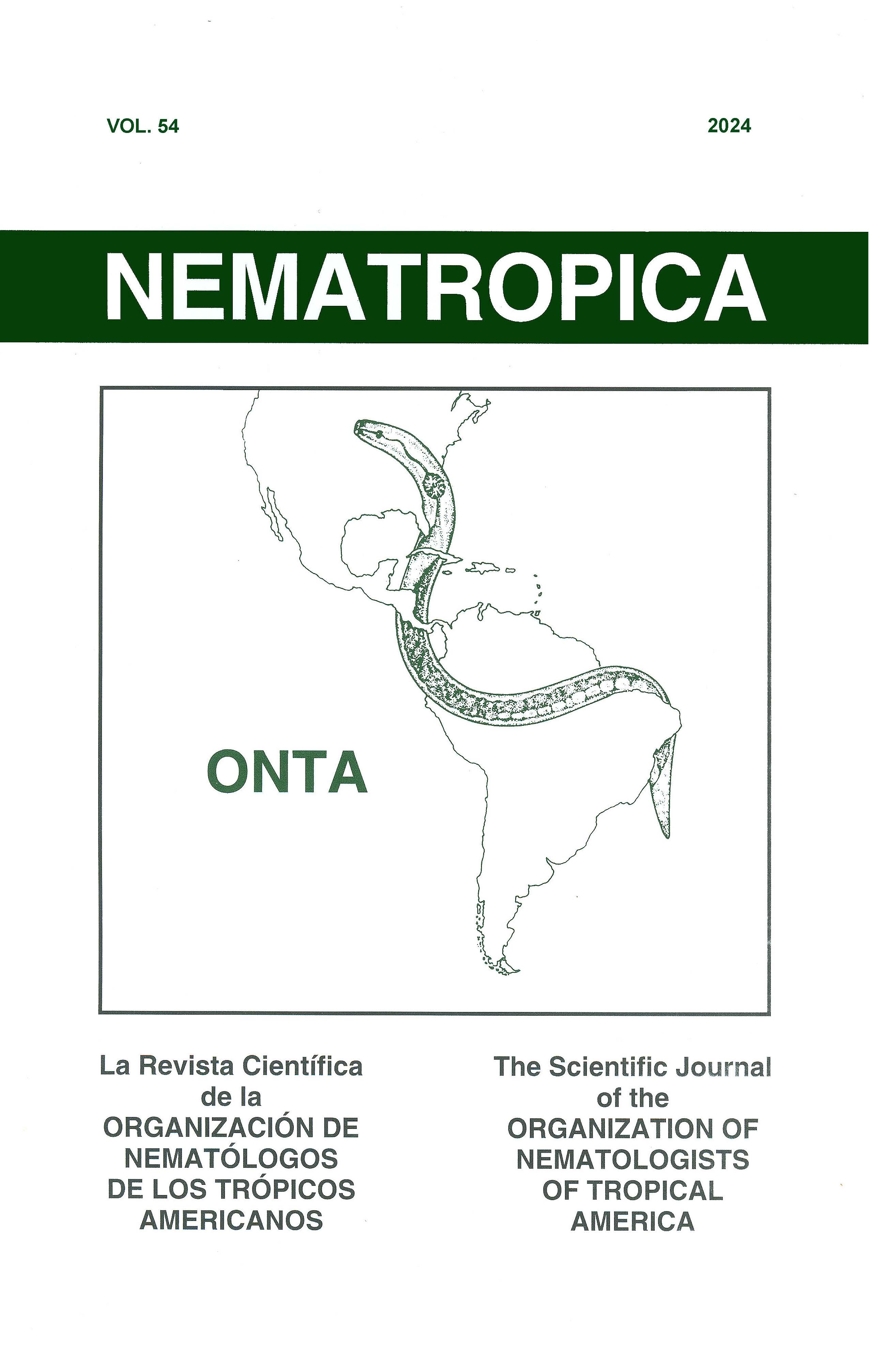MANAGEMENT OF MELOIDOGYNE ARENARIA IN PEANUT PRODUCTION USING RESISTANCE OR NEMATICIDES
Abstract
Peanut cultivars resistant to Meloidogyne arenaria (peanut root-knot nematode, PRKN), a major plant-parasitic nematode in peanut production, are available, but assessment of modern resistant cultivars relative to nematicide application is needed. In field trials in 2021 and 2022, the PRKN-resistant cultivar TifNV-High O/L [TifNV] was compared with a PRKN-susceptible cultivar in combination with no nematicide [UTC], fluopyram or aldicarb nematicide treatments. TifNV significantly increased peanut yield 39% and 125% relative to UTC in 2021 and 2022, respectively. TifNV also managed PRKN abundances and symptoms, including significantly reducing root system galling at harvest 80% and 99.5% relative to UTC in 2021 and 2022, respectively. Nematicide treatments did not improve yield or consistently manage PRKN abundances or root system galling. Total free-living nematode soil abundances at harvest were significantly reduced by TifNV, with 47% and 49% decrease relative to UTC in 2021 and 2022, respectively. Aldicarb and fluopyram had inconsistent negative impacts on free-living nematodes. In summary, the resistant cultivar TifNV-High O/L was highly effective and better than fluopyram or aldicarb application for managing PRKN and maintaining yield in an environment with severe PRKN pressure.

